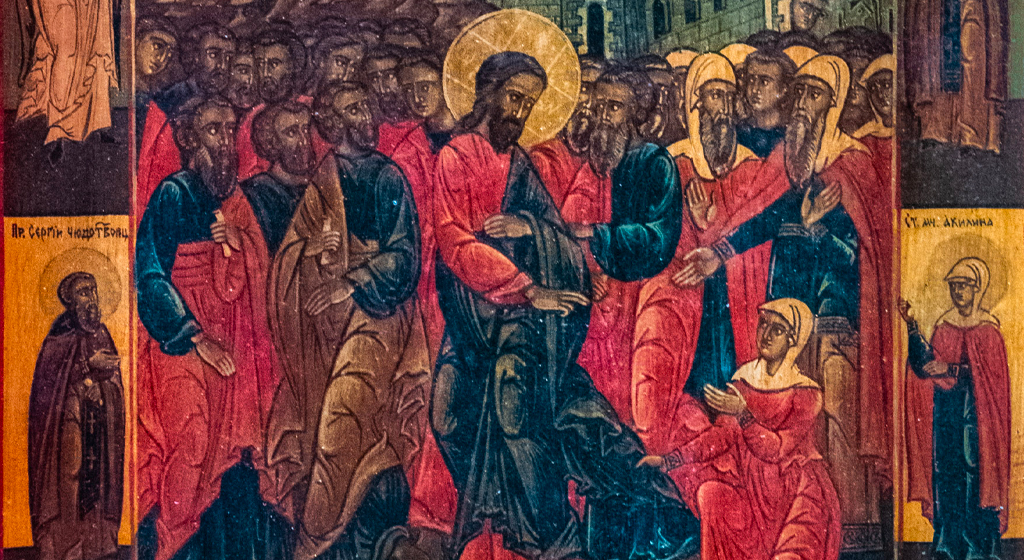Memory of the Poor
Muslims celebrate the feast of the sacrifice (Aid al -Adha).
Reading of the Word of God
Alleluia, alleluia, alleluia
This is the Gospel of the poor,
liberation for the imprisoned,
sight for the blind,
freedom for the oppressed.
Alleluia, alleluia, alleluia
Deuteronomy 10,12-22
'And now, Israel, what does Yahweh your God ask of you? Only this: to fear Yahweh your God, to follow all his ways, to love him, to serve Yahweh your God with all your heart and all your soul, to keep the commandments and laws of Yahweh, which I am laying down for you today for your own good. 'Look, to Yahweh your God belong heaven and the heaven of heavens, the earth and everything on it; yet it was on your ancestors, for love of them, that Yahweh set his heart to love them, and he chose their descendants after them, you yourselves, out of all nations, up to the present day. Circumcise your heart then and be obstinate no longer; for Yahweh your God is God of gods and Lord of lords, the great God, triumphant and terrible, free of favouritism, never to be bribed. He it is who sees justice done for the orphan and the widow, who loves the stranger and gives him food and clothing. (Love the stranger then, for you were once strangers in Egypt.) Yahweh your God is the one whom you must fear and serve; to him you must hold firm; in his name take your oaths. Him you must praise, he is your God: for you he has done these great and terrible things which you have seen for yourselves; and, although your ancestors numbered only seventy persons when they went down to Egypt, Yahweh your God has now made you as many as the stars of heaven.'
Alleluia, alleluia, alleluia
The Son of Man came to serve,
whoever wants to be great
should become servant of all.
Alleluia, alleluia, alleluia
In the passage we heard Moses invites the people of Israel to give up the worship of the golden calf - the sin described in the preceding page - and to direct their heart to the Lord alone. He was the one who freed Israel from the slavery of Pharaoh in Egypt, opened the Red Sea before them, he who protected and fed them with manna in the desert, and now takes care of them in the land where he led them. It will still be the Lord who procures food and support in the coming time. Moses asks Israel: "So now, O Israel, what does the Lord your God require of you? Only to fear the Lord your God, to walk in all his ways, to love him, to serve the Lord your God with all your heart and with all your soul, and to keep the commandments of the Lord your God and his decrees that I am commanding you today, for your own well-being" (vv. 12-13). But to such love we can answer with a similar love. This is why we must: "Circumcise therefore the foreskin of your heart, and do not be stubborn any longer." It is necessary to cut from the heart the stubbornness and pride that do not allow the Lord to mould us with new feelings. If we welcome his work in us, if we let His Spirit descend in our hearts, we walk towards a love that knows no limits or boundaries; a love that moves us first of all towards the poor, taking the example of the Lord who "is not partial and takes no bribe, who executes justice for the orphan and the widow, and who loves the strangers, providing them with food and clothing." The text leans heavily in an unusual way on the love for the stranger: there is not only justice for him but love. It is the preferential love for the weak that appears from the first page of Scripture, as if to underline its being for the poor. Israel must love the stranger, as they are asked to love God.
